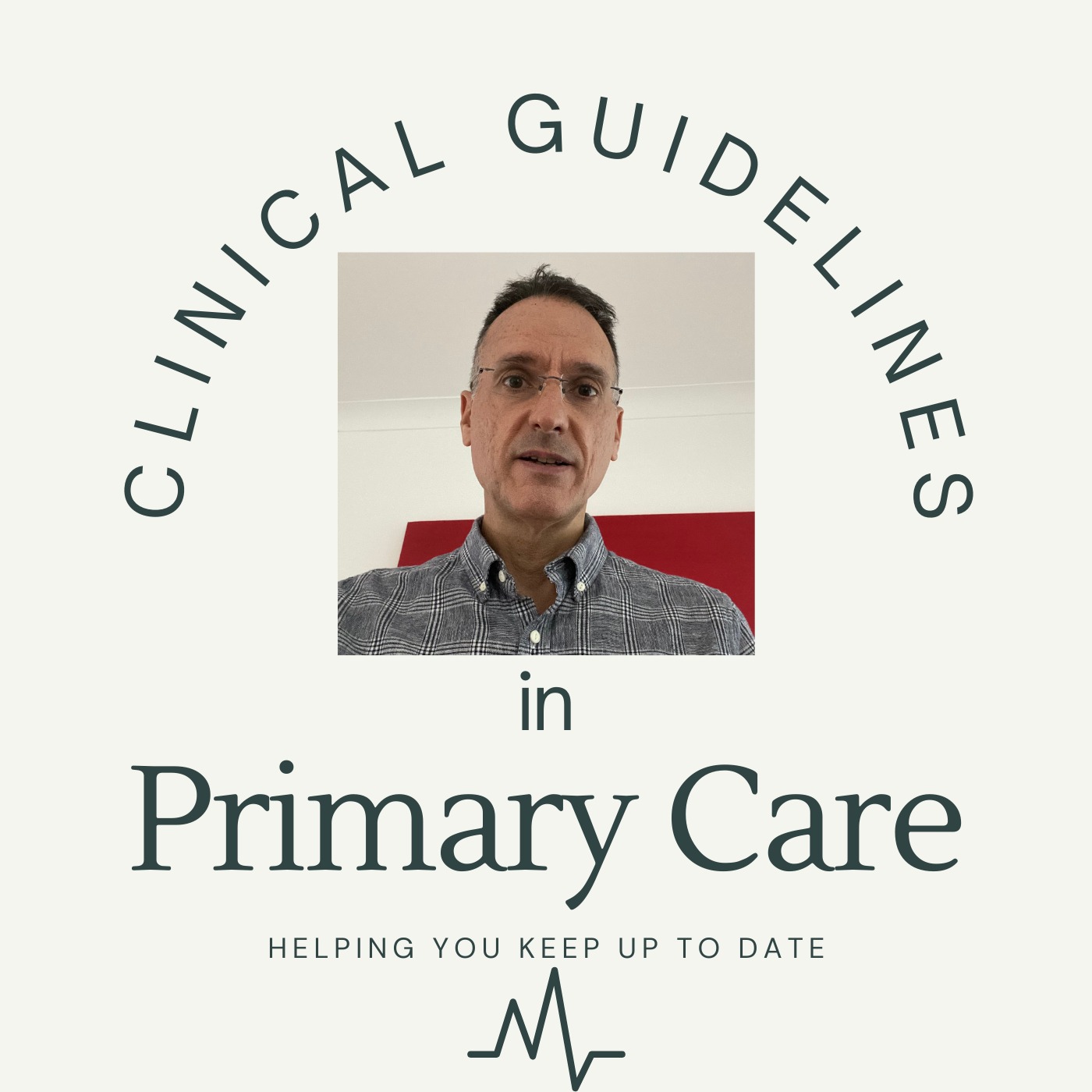Navigating ADHD with NICE: A Practical Guide for Primary Care
My name is Fernando Florido and I am a GP in the United Kingdom. In today’s episode I go through the NICE guidelines “Attention deficit hyperactivity disorder: diagnosis and management” or NICE guideline NG87, Published in March 2018 and last updated in September 2019. I am not giving medical advice; this video is intended for health care professionals; it is only my interpretation of the guidelines and you must use your clinical judgement. There is a YouTube version of this and other videos that you can access here: · The NICE GP YouTube Channel: NICE GP - YouTube The full NICE guidance can be found here: · NICE Guideline NG87: https://www.nice.org.uk/guidance/ng87· ADHD NICE CKS: https://cks.nice.org.uk/topics/attention-deficit-hyperactivity-disorder/ You can download my summaries here: · Summary of NICE guideline NG87: https://1drv.ms/b/s!AiVFJ_Uoigq0mAekn-9SQlZAl5kD?e=WYqHT7· Additional Clinical ADHD information: https://1drv.ms/b/s!AiVFJ_Uoigq0mAhXL3J6CRjq5QoD?e=P8cL7K Intro / outro music: Track: Halfway Through — Broke In Summer [Audio Library Release]Music provided by Audio Library PlusWatch: https://youtu.be/aBGk6aJM3IUFree Download / Stream: https://alplus.io/halfway-throughTranscriptHello everyone and welcome. My name is Fernando Florido and I am a GP in the United Kingdom. In today’s episode I go through the NICE guidelines on ADHD from a primary care perspective. Make sure that you stay for the whole episode because at the end, I am going to give you additional information on the condition including possible causes, pathophysiology, prognosis and the biochemical reasons why pharmacological treatment is so beneficial in ADHD. By the way, I am not giving medical advice; this is for health care professionals and it is only my interpretation of the guidelines so you must use your own clinical judgement. If you want to download a copy of my summaries of the NICE guidelines or the additional clinical information, the links are in the episode description.Remember that there is also a Youtube version of these episodes so have a look in the episode description. Right, so let’s get straight into it. The guideline covers the recognition, diagnosis and management of ADHD both in children and adults. It is aimed at doctors who specialise in ADHD but I have summarised it focusing on what we need to know in Primary care. We should be aware that there is an increased prevalence of ADHD in people:· with any mental health condition or conduct disorder· with epilepsy or neurodevelopmental disorders· with a FH of ADHD· who are born preterm or have an acquired brain injury· who are looked-after or are known to the Justice System But we also need to remember that ADHD is under-recognised in females. If a child has symptoms suggestive of ADHD, NICE says that we should refer to secondary care if the s

